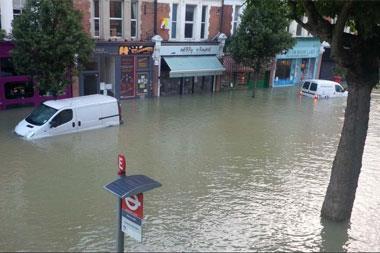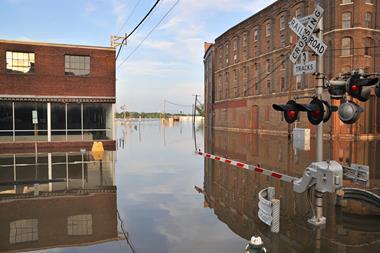Getting loss prevention experts involved early reduces the risk of project disaster and delay. By Martin Vinkenfluegel
We have all seen the photographs: the aftermath of an explosion at a manufacturing plant, industrial areas devastated by hurricane or flood, commercial facilities razed to the ground. Business owners buy insurance to cover such sudden and accidental events, yet with the right advice, many of them can be avoided.
A growing number of companies are working with specialist risk prevention teams for an expert view from the outside. Insured and insurers benefit from their services, especially on major construction projects.
Imagine, for example, picking a new site in Italy or a remote location in Asia to construct a manufacturing facility. It could be to produce parts for other sites within your group - or for a major customer. In any case, it is a facility you cannot afford to lose; the production line needs to be in operation by a specific date. The right loss prevention measures are crucial to a smooth construction process and safe operation once the facility is up and running.
Fire is one of the most damaging hazards to the business. In a production facility, most fire losses happen during the installation of new machinery and commissioning. The loss prevention team can provide guidance during the construction phase to ensure the new production facility and equipment protection meet global and local standards, and that the fire protection installation functions properly.
The business will want to check local fire protection codes and regulations, which can vary by region. They need to be taken into account together with any corporate fire protection standards. Loss prevention experts will be aware of all the regulatory variations and have crucial local knowledge, such as competent and experienced contractors.
For instance, an aluminium company was planning a $50 million expansion to its Italian facilities. The project included a new aluminium cold rolling mill, a high bay warehouse, electrical control centres and modifications to the existing production flow process. Cold rolling mills use a flammable cooling fluid, which can be easily ignited during normal operations so fire protection was critical to protect assets and ensure continuous operation of the newly installed equipment. To address this need, the company developed internal fire protection engineering standards for its rolled product division.
The project engineers involved loss prevention specialists to check the final fire protection installation against the company's standards. During the review, it became apparent that the installation would not meet those standards. Eventually, the fire protection contractor had to uninstall one protection system covering the entire rolling mill and replace it.
Property insurers have a keen interest in the timely start-up of new production lines, because delays will be costly. For this reason, the industry promotes the use of loss prevention specialists to assist clients to:
• Avoid fire losses during the construction phase, because they could delay start-up and result in claims
• Make sure the plant is protected in accordance with internationally recognised and accepted fire protection codes to minimise potential future losses
• Avoid building in an area susceptible to flood, earthquake or high winds
• Develop the best possible pre-emergency and business continuity plan for national catastrophes
Loss control experts can also:
• Provide specifications for effective fire protection systems
• Find qualified local contractors capable of doing the job
• Review construction drawings and hydraulic calculations produced in the local language
• Ensure the installation is completed in accordance with specified codes and standards
• Witness testing of all new fire protection installations
• Review loss prevention measures, including hot work permits, manual fire protection equipment and site security during the construction, testing and commissioning phases, and recommend improvements where necessary
Property insurers do not like those pictures of devastated sites and razed buildings any more than the property owner does. More and more companies use their insurers in loss prevention activities, because they bring the advantage of global experience. It makes good business sense.
Martin Vinkenfluegel is regional loss prevention manager, Europe & Asia for XL Insurance (Risk Engineering).
martin.vinkenfluegel@xlgroup.com
www.xlinsurance.com


















